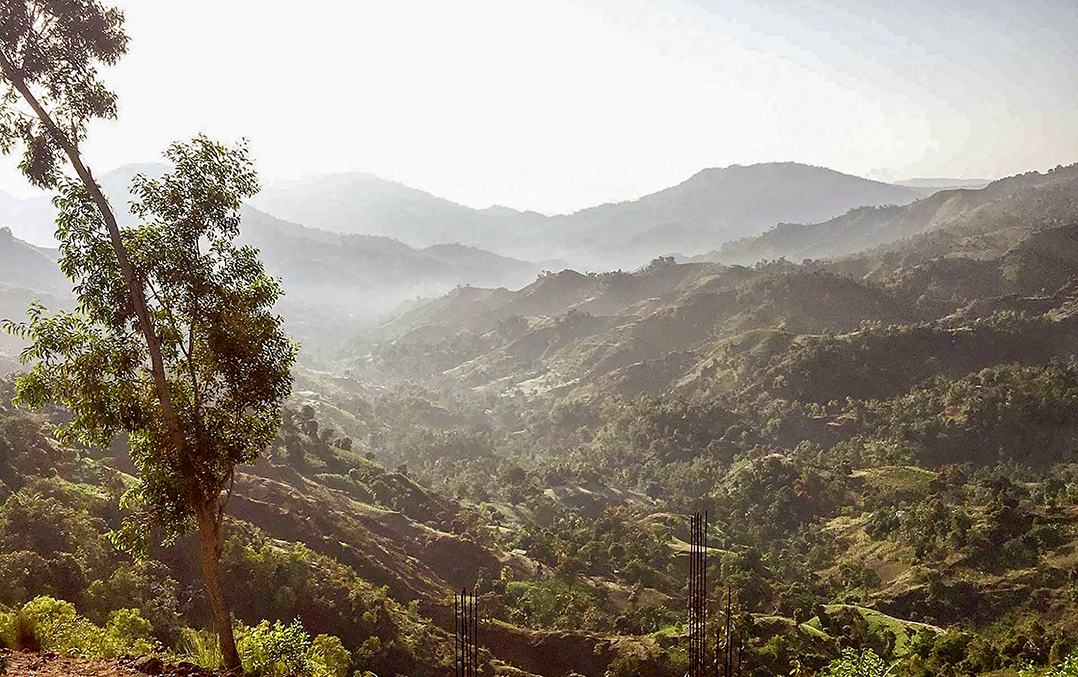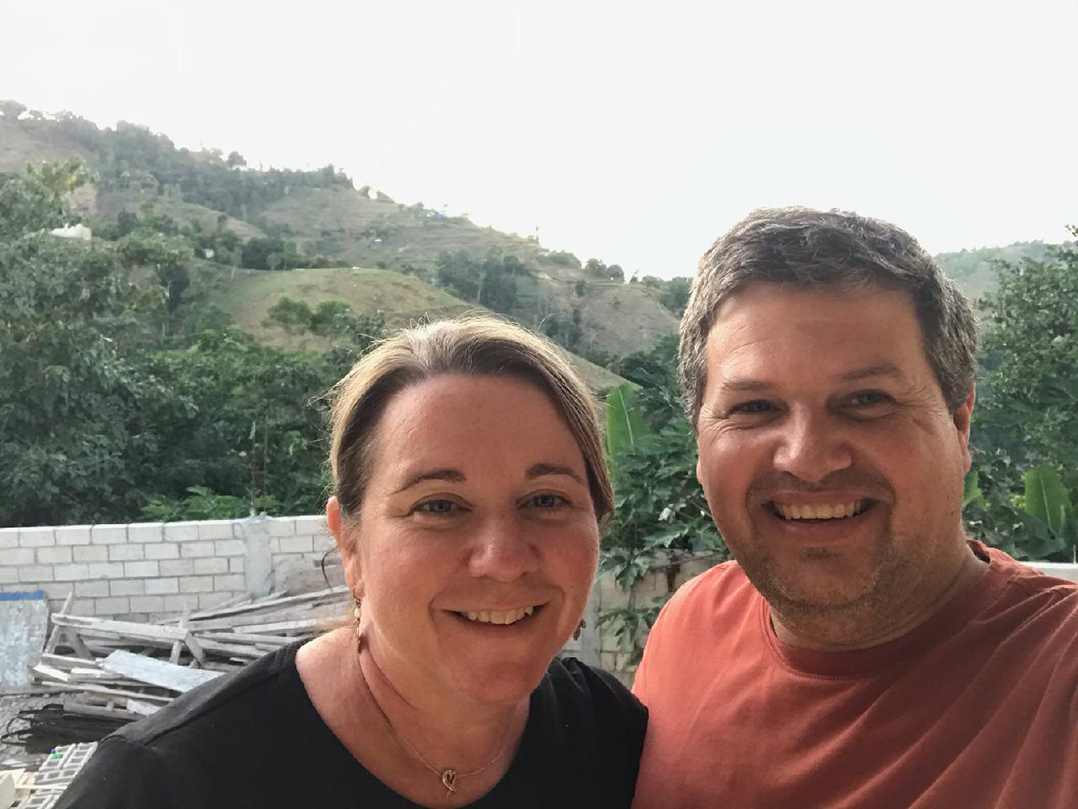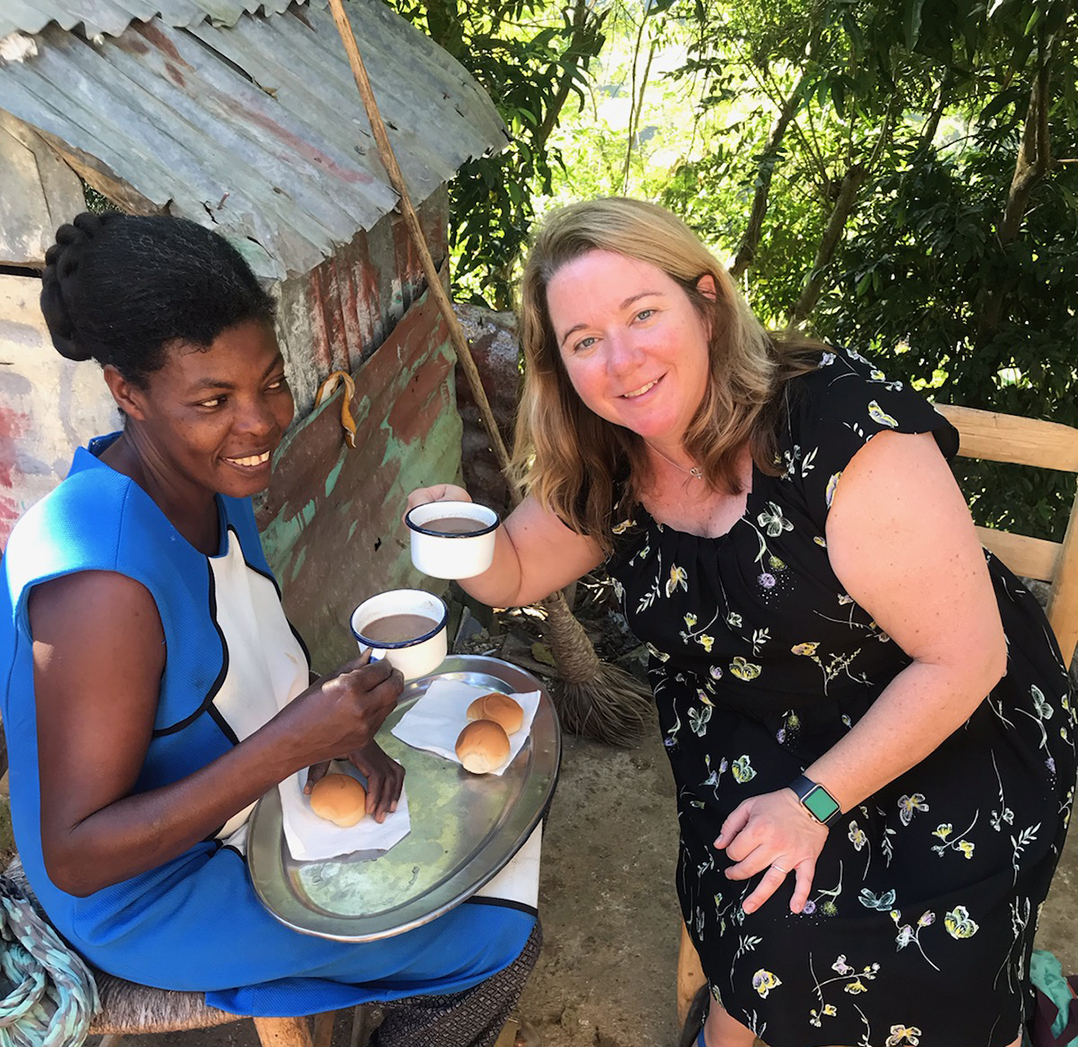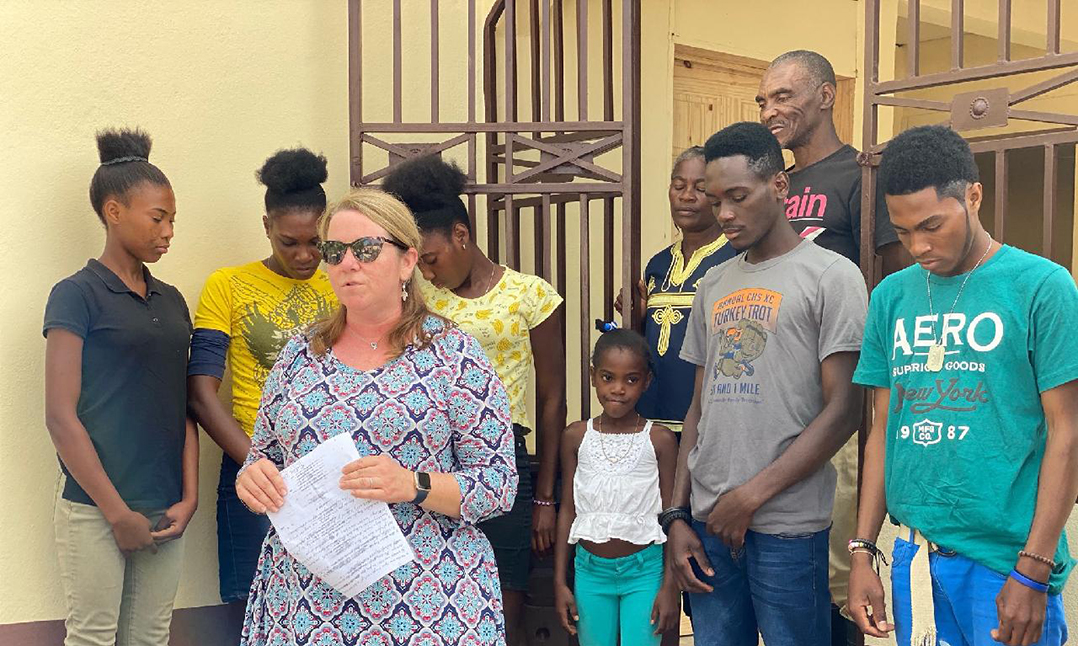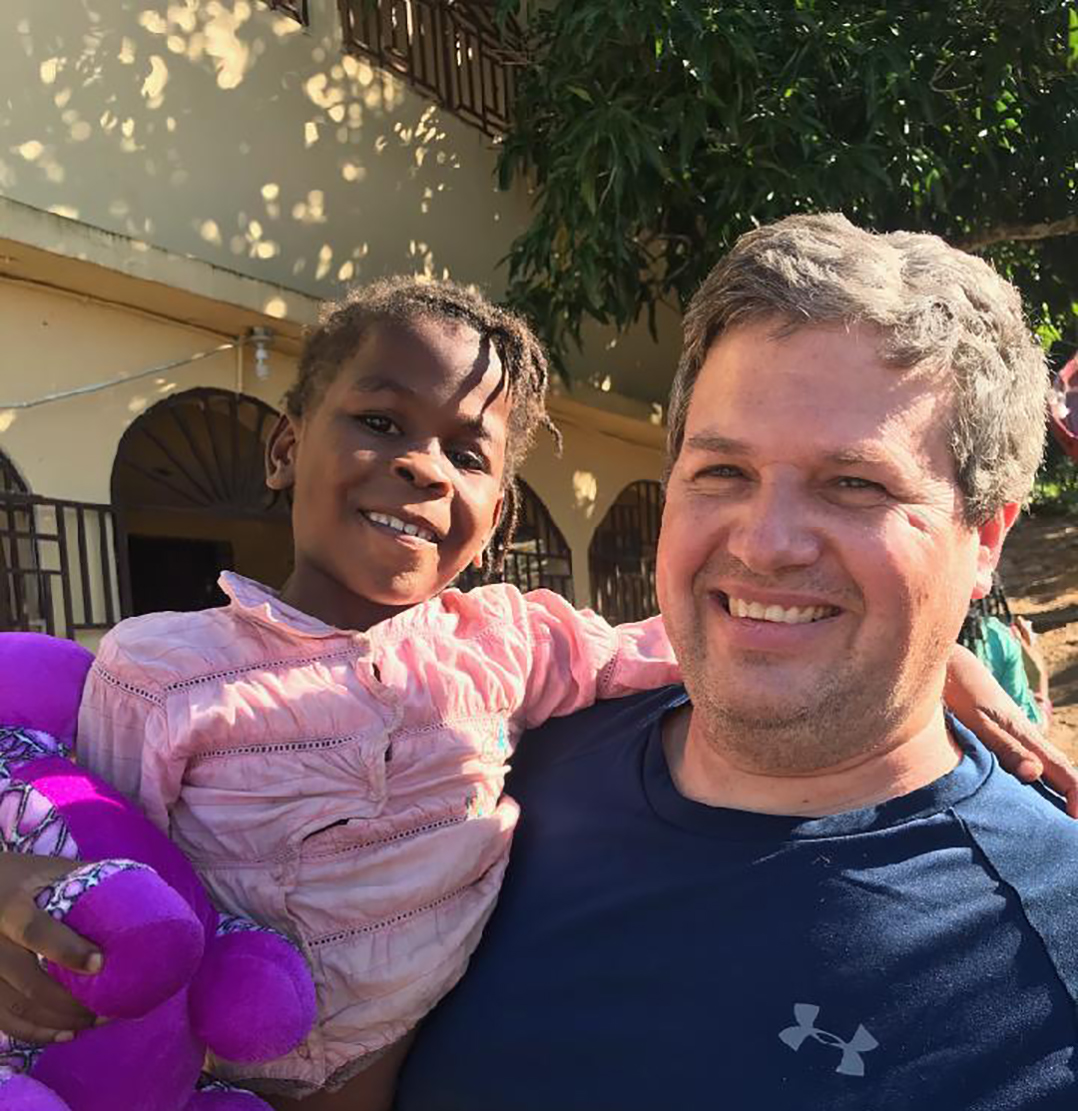For nearly two decades, a Zionsville couple has traveled to Haiti to build houses. In 2010, they increased their efforts, and in 2018 they established Zanmi Fondwa, a nonprofit employing Haitians who are now building homes in the community at an even faster rate.
Zionsville residents David Williamson, 44, and Jamalyn Peigh Williamson, 45, began traveling to Haiti in 2003. They married earlier that year after meeting in graduate school at Duke University, where one of Jamalyn’s classes required she travel with other students to the impoverished Caribbean nation during spring break. The following year, Jamalyn and David were engaged and knew they wanted to do mission work after they married.
The couple, based on Jamalyn’s prior trip, decided to live in Fondwa, a territory bordering a stretch of road in southern Haiti, for two years. They learned the nation’s predominant creole language, eventually becoming fluent, and they made lasting friendships that anchored them to the area. David and Jamalyn – both pastors at the time – have since continued to travel intermittently to Fondwa for several years.
But on Jan. 12, 2010, a 7.0-magnitude earthquake devastated Haiti, leveling homes and destroying infrastructure. Jamalyn was there that day, leading a volunteer group from central Indiana to an orphanage in Fondwa. Her husband, David, who is now the senior pastor at Zionsville United Methodist Church, was at their Zionsville home, with their children, when he saw the news.
The initial jolt knocked down everyone in Jamalyn’s group while they were on the footpath leading to the orphanage. The wall surrounding the orphanage collapsed outward, likely saving the children who were playing nearby. Almost immediately aftershocks started, and the sun began to set, engulfing in darkness the wreckage, the approximately 200,000 dead and the millions left without essentials, including lines of communication.
“That first night was very quiet,” Jamalyn said. “We didn’t know what we were going to find in the daylight.”
Jamalyn was unable to make a call for four days. Meanwhile, David drove to Jamalyn’s parents’ house so they could watch the children while he called her cellphone every 10 to 15 minutes. On Jan. 16, a Haitian physician who was a friend of a couple in Jamalyn’s group used his satellite phone to reach David and other concerned family members of other group members.
After returning home, Jamalyn found that sharing her experience moved people, and monetary donations came without being requested. With the donations, the couple was able to build approximately two houses a year, David said.
“We started a process of rebuilding houses for people who lost them in the earthquake,” Jamalyn said. “When we would take groups down, we would help fund the houses that way. Then, around 2017, when we realized we had built all these houses without really putting in a whole lot of strategy, we were just building houses for people who really needed them. Basically, we took a pause to really think about what we wanted to do in the community.”
Through their director of operations in Haiti, the couple asked Fondwa residents what their most pressing needs were. Their answer was more housing.
“We decided that we would continue to focus on housing, but we wanted to put a little more structure and strategy behind it,” Jamalyn said.
The couple launched Zanmi Fondwa in 2018 as a result. The Williamsons developed a leadership team of nine Fondwa community leaders to identify the area’s most vulnerable families. The families must show proof they own their land, commit to volunteering 200 hours of service helping build neighboring houses, attend seven seminars run by community leaders and make affordable payments toward the house. The nonprofit’s goal was to build 40 houses in Fondwa in its first three years. Currently, the approximately 80 Haitians the nonprofit employs are constructing house Nos. 33, 34 and 35, and Jamalyn said she expects the nonprofit to accomplish its goal by this fall.
“Our goal was to create jobs and to create stable housing,” said Jamalyn, the nonprofit’s CEO. “Our policy is that Americans don’t build houses. They can go down and work alongside Haitians, but we don’t have a structure that depends on Americans to do the building.”
Ultimately, the couple wants to build homes that will last generations, allowing Haitians in Fondwa to focus on other aspirations in life.
“What we are trying to do is create stability in a house so that the families can quit worrying about where they live and their housing, and they can start thinking more about finishing their education or starting a business or being able to invest their money in something else besides a dilapidated home that’s never going to be right,” Jamalyn said.
“It’s been an incredible journey,” David said. “To live there for two years, we had no idea this was going to become such an important part of our lives or that we would have this opportunity this many years later to start a nonprofit. But for me, the thing that has been most gratifying has been the way that seeds we planted a long time ago have now come to fruition.”
David said most of the nonprofit’s staff in Fondwa are students he taught English to when they were in high school.
“When we first built these relationships, we had no idea someday this would become a nonprofit and someday we would be building houses,” David said. “The same thing with our donors. We built relationships over 20 years of taking them to Haiti with us. When we decided we wanted to start a nonprofit, to see all those friendships and all those people step forward and help us get this started, that was probably one of the most gratifying things I’ve ever experienced.”
For more about Zanmi Fondwa or to make a donation, visit zanmifondwa.com.
Having faith
David Williamson and Jamalyn Peigh Williamson wanted to deepen their faith when they married in 2003, leading them to live in Haiti for two years. They said their experiences during those two years and in years since changed their worldview.
“We really felt called to leave the United States and work somewhere outside of the country,” Jamalyn said. “We felt like we needed to understand what the body of Christ looks like for us as Christians, (and) that did not include just Americans, so we wanted to have an idea of what that looked like so that when we were serving in the local church, we could have a better understanding of what it means to think outside of ourselves.”
One day, after the couple returned from Haiti, a man asked them, “Were you able to save anyone while you were there?”
David and Jamalyn paused, and David said, “I sure hope people felt Jesus through us in the way that we treated others and the way that we acted, but I could honestly say that there were two people that were saved: Jamalyn and me, because it really helped us understand what it means to live in a community, to know how to be a good neighbor.”


